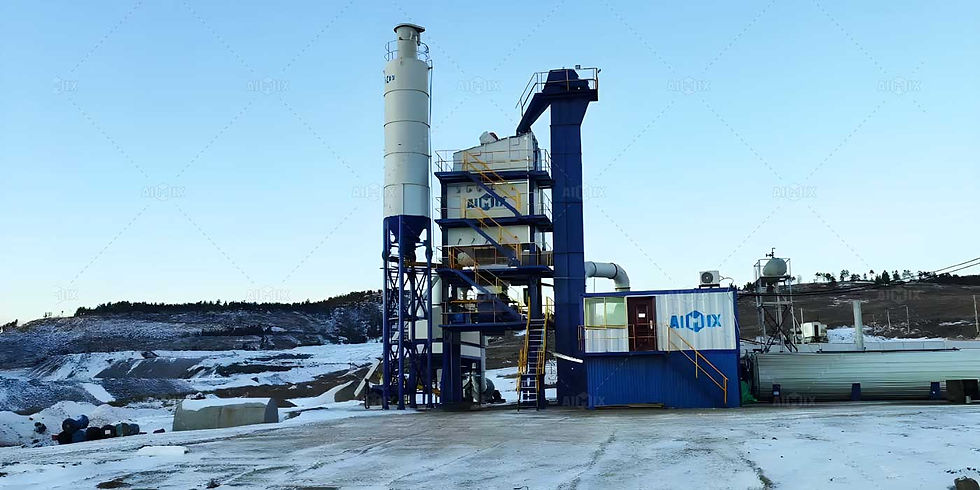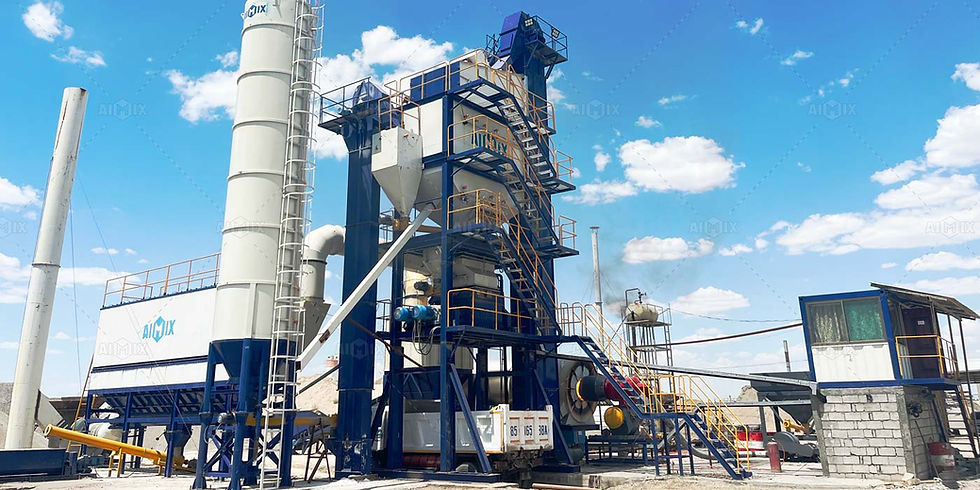How does an Asphalt Mixing Plant Conserve Water in Regions with Limited Water Resources?
- aimixglobal5
- Apr 16, 2024
- 2 min read
Water scarcity is a pressing issue, especially in regions where water resources are limited. In such areas, every drop counts, and industries must innovate to minimize water usage. Asphalt mixing plants, pivotal in road construction, have embraced water conservation measures, significantly reducing their environmental footprint.

Understanding Asphalt Mixing Plants
Asphalt mixing plants, also known as asphalt plants or batch plants, are facilities where asphalt concrete is produced. Then you can know what is an asphalt plant. This crucial material is used in constructing and maintaining roads, highways, and other infrastructure. Traditionally, these plants require a considerable amount of water for various processes, including aggregate washing, dust suppression, and cooling.
Water Conservation Techniques
To address water scarcity concerns, modern asphalt mixing plants integrate advanced technologies and practices to conserve water effectively.
1. Recycling Systems
State-of-the-art asphalt plants are equipped with sophisticated recycling systems that capture and reuse water throughout the production process. Wastewater from various operations, such as cleaning and cooling, is treated and recycled, significantly reducing overall water consumption.
2. Dry Dust Collection
Conventional asphalt plants often rely on water for dust suppression during material handling. However, newer models utilize dry dust collection systems, eliminating the need for water while maintaining a clean and environmentally friendly work environment.
3. Efficient Cooling Technologies
Cooling is essential in the asphalt production process to ensure the proper temperature of the final product. Advanced cooling technologies, such as air-cooled systems, minimize water usage compared to traditional methods like water-cooled systems, without compromising on quality.

Benefits of Water Conservation
The adoption of water conservation measures in asphalt mixing plants offers numerous benefits, both environmentally and economically.
1. Environmental Sustainability
By reducing water consumption and minimizing wastewater discharge, asphalt plants contribute to preserving local ecosystems and natural resources. This commitment to sustainability aligns with global efforts to mitigate climate change and promote responsible industrial practices.
2. Cost Savings
Water conservation not only benefits the environment but also yields significant cost savings for asphalt plant operators. Recycled water reduces the need for freshwater intake, lowering operational expenses associated with water procurement and treatment.
3. Regulatory Compliance
Adopting water conservation measures ensures compliance with stringent environmental regulations governing water usage and discharge. By proactively addressing these requirements, asphalt plant operators mitigate regulatory risks and maintain a positive reputation within the industry.

Conclusion
In regions with limited water resources, the conservation efforts of asphalt mixing plants play a crucial role in sustainable development and responsible resource management. By implementing innovative technologies and practices, these facilities minimize their environmental impact while ensuring the continued supply of high-quality asphalt for infrastructure projects. For businesses and communities alike, supporting the plant mix asphalt that prioritizes water conservation is not just a choice but a necessity in building a more sustainable future.



Comments